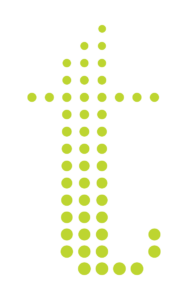Most people are taught through our educational system, managers, and culture that there are “right” answers. A failure to find the right answer is often chalked up to an issue with someone’s intelligence or character. At Talentism, we call this a BSL narrative: it’s common to attribute mistakes to your own or someone else’s bad, stupid or lazy (BSL) behavior. This is pernicious for a few reasons:
1. The framing of right or wrong answers affects our thinking. Biologically, our brains are wired to set goals and make predictions relative to those goals (as Sensemaker readers know, this is how our forebears managed to not get eaten by lions). When we set ‘getting the right answer’ as the goal, we immediately start to predict the failure to get the right answer as the outcome to be avoided. Rather than this helping us succeed, we spin in confusion loops of what-ifs. We lose sight of our actual goals because we’re so focused on avoiding being wrong. In doing so, we overstate the risk and cost of the “wrong” answer, and undervalue the opportunity cost of our time and attention.
2. Looking for the “right” answer blinds us to the real context that most humans operate in. Reality is almost never structured as a standardized test, and is far more often a field of probabilities, unknowns, and tradeoffs. Trying to collapse that complexity to a right answer sets us up to ask the wrong questions. Rather than letting us pull back to evaluate the system we are operating in, bringing in our best guesses and learnings from past experiences, seeking the “right” answer narrows our field of vision right when creative guesswork and an ability to see a bigger picture would be most useful.
3. Chasing the right answer undermines our ability to work with others. Framing problems as needing one right answer typically sets people up to defend a position, because who wants to be wrong? What we lose is the ability to illuminate a situation by integrating multiple ways of thinking.
That’s why, at Talentism, we’re much more interested in the best next choice rather than the right one. There is rarely a right answer, just a purposeful way to learn well. Your goal should be to come up with a next choice. Stop looking for the right answer, and focus on the speed of learning. This requires taking risks, but spending time and attention on an experiment to inform the next choice usually results in far more reward than risk. You learn that you can solve problems that you create, that mistakes aren’t usually that bad, and that action-taking is often a good antidote to bad sensemaking. By letting go of the need to find the right choice in any given situation, we often end up on a far more optimal path over time.
Reflection questions that may help you in making a “next” choice:
- What is a complex situation you’re currently facing?
- How are you approaching the process of making a decision? Are you focused on finding a single right answer, or are you willing to accept a next choice that can lead to more learning toward your goal?
- If you are focused on the “right” choice, what is one low-risk way you can identify that will help you learn more? What would acting on that look like?
How to experiment with these questions:
- For the next two weeks, pick a relatively low-consequence decision in your life. Try to make a minimum of three “next” choices on that decision, focused on incremental progress and learning toward your goal.
- At the end of the two weeks, reflect on the process and what you learned. How did it go? What felt different when you were focused on the next choice, instead of the right one?



